Slovakian prime minister Robert Fico shot in ‘politically motivated’ attempted assassination
Slovakia’s prime minister Robert Fico was left fighting for his life after a shooting described by government officials as an assassination attempt.
The incident took place in Handlova, a small mining town about 120 miles northeast of the capital Bratislava, after a government meeting on Wednesday.
The 59-year-old premier was hit in the stomach during the broad daylight attack, and underwent major surgery.
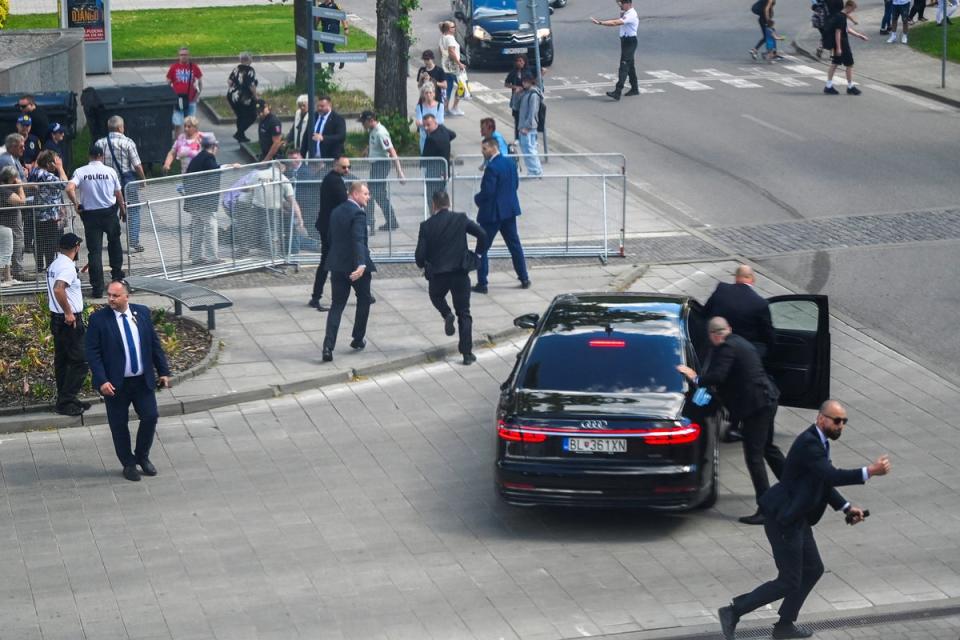
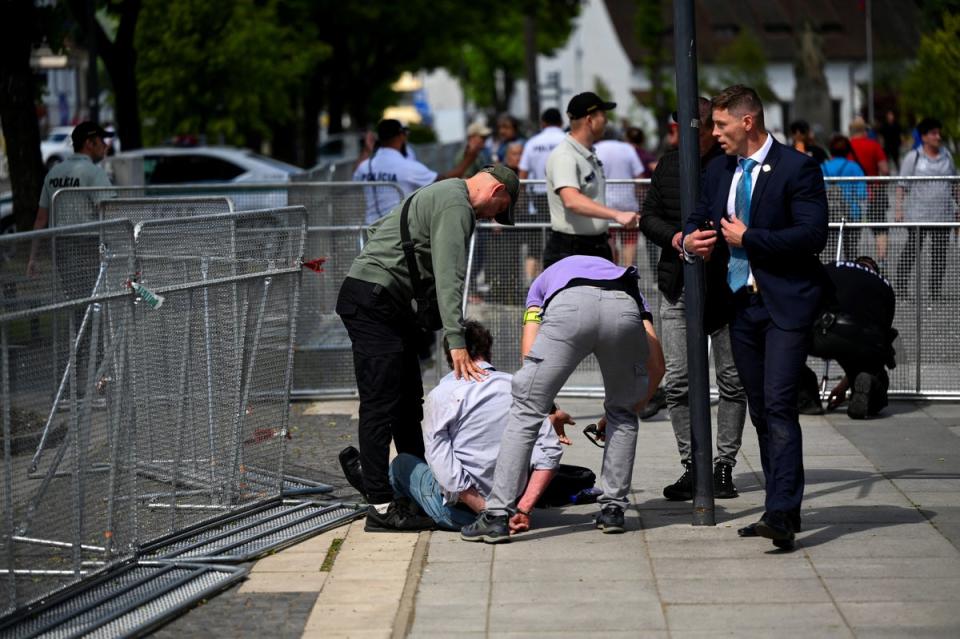
Speaking late on Wednesday, deputy prime minister Tomas Taraba said the operation “went well” and added: “I guess in the end he will survive ... he’s not in a life-threatening situation at this moment.”
After the incident, Fico was bundled into a car by his security team before being taken to hospital for treatment.
A suspect, understood to be a 71-year-old former security guard, has been detained after dramatic images showed a man handcuffed on the ground.
The shooting occurred in front of the local House of Culture, where Mr Fico came to meet with supporters.
A reporter for the daily newspaper Dennik N said they heard shooting and then saw rescuers carrying Mr Fico, an ally of Russian president Vladimir Putin, to a car.
“I was just going to shake his hand,” said a man who witnessed the shooting. His wife said she “almost became deaf” after hearing three or four shots ring out.
A post on Mr Fico’s Facebook page following the shooting described his condition as life-threatening. A spokesperson for Handlova Hospital, where Mr Fico was first treated, said he was conscious when he arrived and that medics there were able to stabilise his “life functions”. He was later transferred to a higher-level hospital by helicopter.
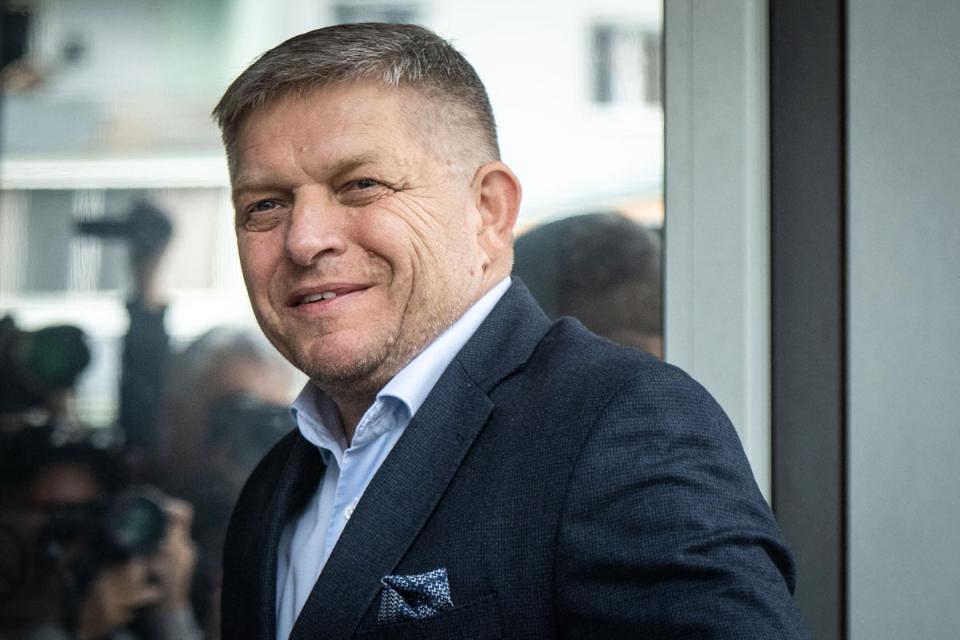
Pictures later showed Mr Fico – covered by a blanket and surrounded by medics – being wheeled into a hospital in Banska Bystrica, a city about a 45-minute drive from Handlova. Deputy speaker Lubos Blaha adjourned the day’s session of parliament until further notice.
Slovakian president Zuzana Caputova condemned “a brutal and ruthless” attack on the premier.
“I’m shocked,” Ms Caputova said. “I wish Robert Fico a lot of strength in this critical moment and a quick recovery from this attack.”
In a later statement, Ms Caputova said that “a physical attack on the prime minister is primarily an attack on a person, but also on democracy”.
Peter Pellegrini, Slovakia’s president-elect and an ally of Mr Fico, described the attack as “a threat to everything that has adorned Slovak democracy so far”.
“I am horrified by where the hatred towards another political opinion can lead,” he added.
“We don’t have to agree on everything but there are plenty of ways to express our disagreement democratically and legally.”
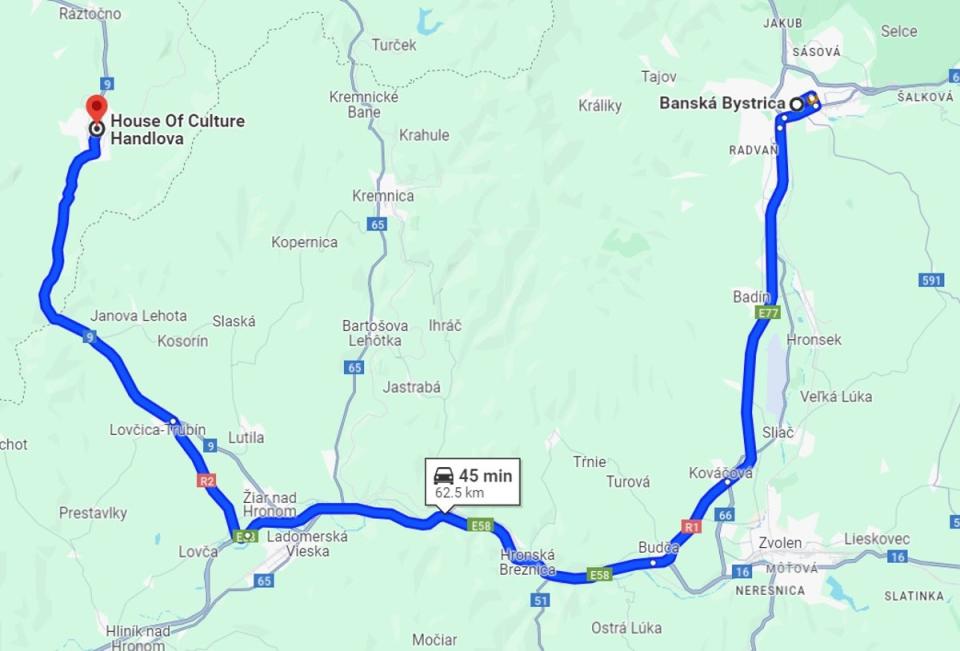
Leaders across Europe began to condemn the shooting and send their best wishes to Mr Fico and his family.
“I strongly condemn the vile attack on prime minister Robert Fico,” EU Commission president Ursula von der Leyen said on X.
“Such acts of violence have no place in our society and undermine democracy, our most precious common good.
“My thoughts are with PM Fico and his family.”
Donald Tusk, the prime minister of Poland and former president of the EU Council, said: “Shocking news from Slovakia. Robert, my thoughts are with you in this very difficult moment.”
Rishi Sunak said: “Shocked to hear this awful news. All our thoughts are with prime minister Fico and his family.
Jens Stoltenberg, Nato secretary general, said he was shocked and appalled by the shooting.
“The news about the shooting of Slovak prime minister Robert Fico is shocking,” said Czech prime minister Petr Fiala. “I wish the prime minister to get well as soon as possible. We must not tolerate violence, it must have no place in society.”
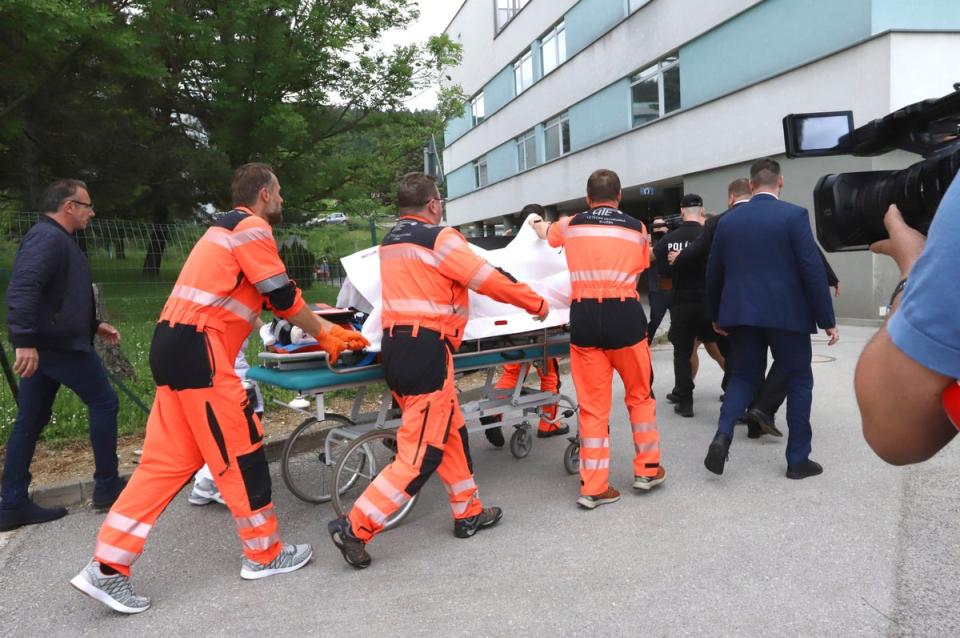
Following the shooting, Slovakia’s biggest opposition party called off a planned protest against government public broadcaster reforms set for Wednesday evening.
The Slovak government meeting in Handlova was part of a tour of the country’s regions by Mr Fico after he returned to power last year.
He is in his fourth stint as prime minister after his scandal-tainted leftist Smer, or Direction, party won Slovakia’s parliamentary election at the end of September 2023 on a pro-Russian and anti-American platform. He formed a parliamentary majority by signing a coalition government deal with the leftist Hlas, or Voice, party and the ultranationalist Slovak National Party.
Slovakia, a country of 5.5 million people that shares a border with Ukraine, had been – up to that point – a staunch supporter of Kyiv since Russia invaded in February 2022, donating arms and opening its borders for refugees fleeing the war.
Mr Fico stopped that military aid and opposed EU sanctions on Russia while wanting to block Ukraine from joining Nato. During the election, Mr Fico vowed to pursue a “sovereign” foreign policy, promised a tough stance against migration and non-governmental organisations and campaigned against LGBT+ rights.
Known for his tirades against journalists, Mr Fico has previously labelled a major television network, two nationwide newspapers and an online news site his enemies and said he won’t communicate with them.
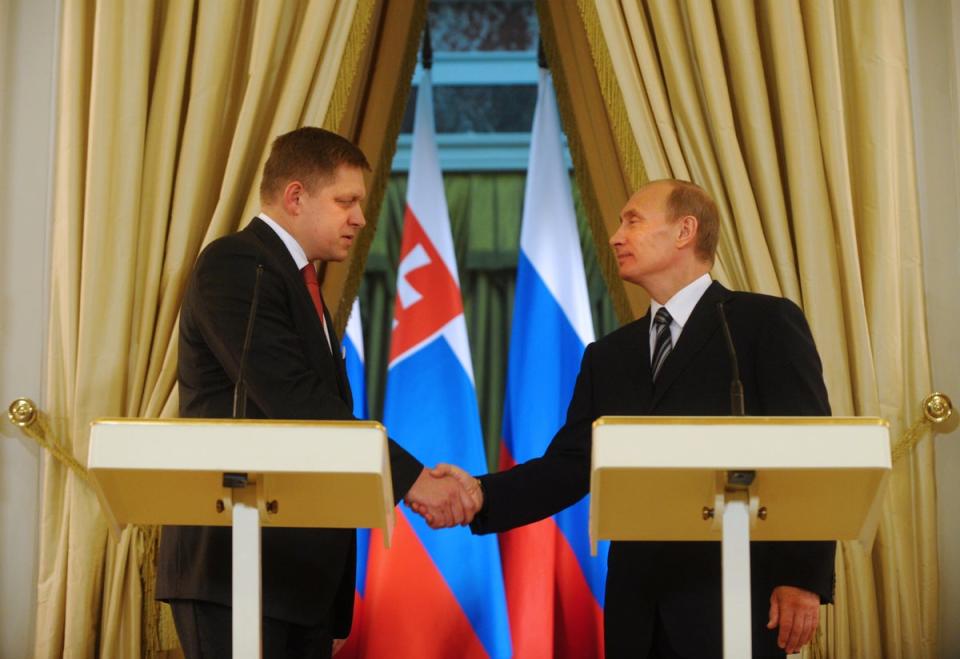
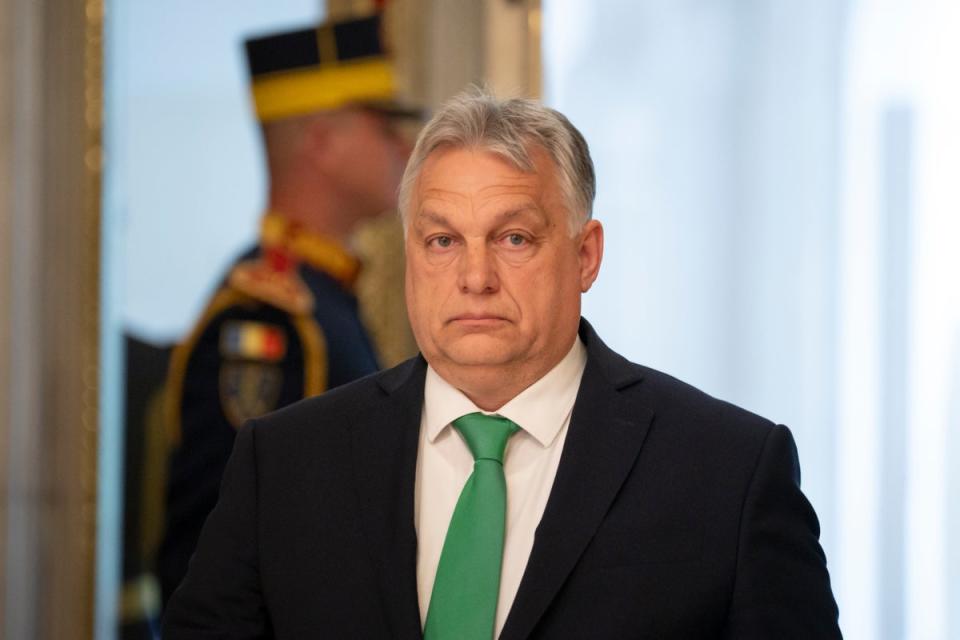
In April, Slovakia’s government approved controversial plans for an overhaul of the country’s public radio and TV broadcasting – a move critics said would result in the government taking full control of the media.
During a three-decade career, Mr Fico has moved between the pro-European mainstream and nationalistic positions opposed to European Union and US policies, his latest election win being based around the latter. He has also shown a willingness to change course depending on public opinion or changed political realities.
Mr Fico, the son of a forklift truck driver and shop worker, grew up in Topolcany, a small town in Slovakia’s west, in what was then Czechoslovakia – a satellite state of the Soviet Union.
He attended local primary and secondary schools, then signed up to study law at the respected Comenius University, 100km away in the capital, Bratislava.
In 1986, a 23-year-old Fico joined the Communist Party and in 1988 he married a fellow lawyer.
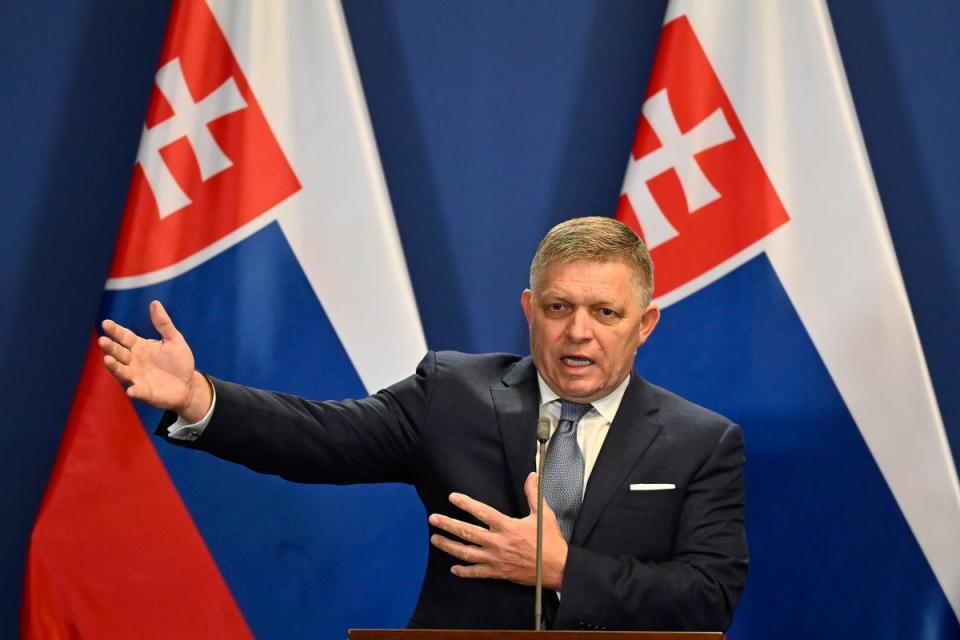
The shooting comes three weeks ahead of crucial European parliamentary elections, in which populist and hard-right parties in the 27-nation bloc appear poised to make gains.
Slovakia’s major opposition parties, Progressive Slovakia and Freedom and Solidarity, cancelled a planned protest against a controversial government plan to overhaul public broadcasting that they say would give the government full control of public radio and television.
“We absolutely and strongly condemn violence and today’s shooting of premier Robert Fico,” said Progressive Slovakia leader Michal Simecka.
“At the same time, we call on all politicians to refrain from any expressions and steps which could contribute to further increasing the tension.”
Milan Nic, a former adviser to the deputy foreign minister of Slovakia, said that the attack was unfortunately not an “isolated incident”.
He said he was “sorry” to say that he believed the shooting had been “coming” due to the country’s increasingly polarised politics – and threats made against politicians on social media – as he called for calm on all sides.
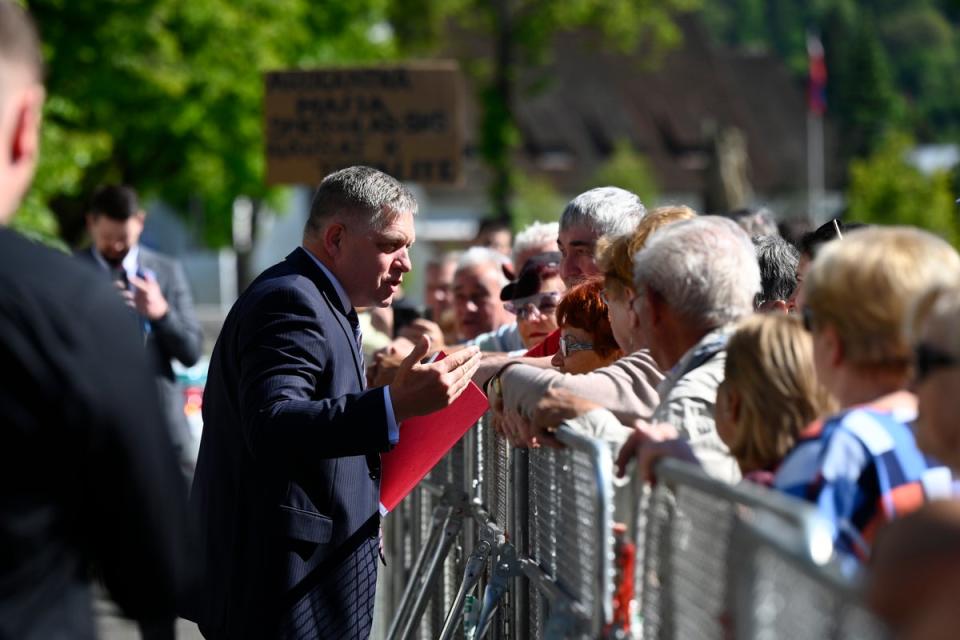
“I would expect all leaders of the parties in parliament to step up in front of the cameras and call on their supporters to calm down,” he said.
He urged them “to unite in condemnation of this act and to stop with the threats against the lives of politicians, to set back from the brink”.
He added: “We are at the edge of an abyss. This terrible incident – an assassination attempt – should be a wake-up call to step back from that abyss.
“And not only in my country, but I think throughout Europe and the Western world.”
Mr Fico and his Smer party won Slovakia’s 30 September parliamentary elections.
Critics worried Slovakia under Fico would abandon the country’s pro-Western course and follow the direction of Hungary under Mr Orban, who congratulated Mr Putin on his re-election in Russia’s sham presidential election in March.
Thousands have repeatedly rallied in the capital and across Slovakia to protest against his policies.


